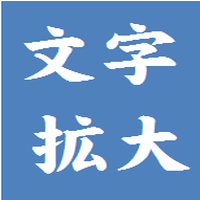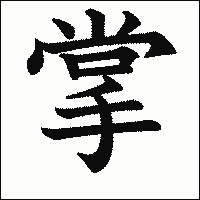Gassho
合掌
がっしょう
We type this at the end of our posts all the time but what does it mean?
Interestingly, doing a quick search of the forum found only one post of that question being asked
I suspect some of us have just reciprocated the response in kind, some inferred the meaning, and some having heard what it means from others.
Some, having come to zen after being involved in another tradition may have associated it with “Namasté” (https://en.wikipedia.org/wiki/Namaste) meaning “I bow to the (spirit, god, divine) in you,” sort of like “I see you” in Navi. In this way it represents in writing not only the spirit of the action but the action itself. And when the action is performed the phrase is spoken aloud.
But would we say Gassho aloud, or is it redundant, like the guy in the movies that says “I salute you” while saluting.
bd6e3dd019e09121593898ca9607ef451df98fee03a4921c9580a9129e645504.jpg
So let’s look at the Kanji, the pictographic characters that form the word, they are 合 and 掌. Taken separately they represent the verb, to fit, and the noun, palm. Together they form the compound word and describe the action being taken, putting hands together. (Interestingly the pronunciation of the individual words in Japanese would be “a tenohira”, and if you put 2 compound words together you can get another word or a unique idiom called a yojijukugo).
So the word doesn’t even represent the bow! What does it mean then!
It is one of many Mudras in Buddhist tradition and I will let others more versed in such things add their experience. But in simple terms it means coming together. In correspondence however, the word gassho entails the mechanics of the mudras and the intent of the bow, a Buddhist “Respectfully yours.”
Out in the Japanese public I believe, that the word is not said with the action, and the action only in certain situations.
I look forward to the discussion, feel free to add your experiences, and if I am in error.
ごめんなさい
png;base646ffac93728e0d554.png
合掌
Sat
Inconsistent student of Japanese for 7 years, no JLPT taken.
合掌
がっしょう
We type this at the end of our posts all the time but what does it mean?
Interestingly, doing a quick search of the forum found only one post of that question being asked
I suspect some of us have just reciprocated the response in kind, some inferred the meaning, and some having heard what it means from others.
Some, having come to zen after being involved in another tradition may have associated it with “Namasté” (https://en.wikipedia.org/wiki/Namaste) meaning “I bow to the (spirit, god, divine) in you,” sort of like “I see you” in Navi. In this way it represents in writing not only the spirit of the action but the action itself. And when the action is performed the phrase is spoken aloud.
But would we say Gassho aloud, or is it redundant, like the guy in the movies that says “I salute you” while saluting.
bd6e3dd019e09121593898ca9607ef451df98fee03a4921c9580a9129e645504.jpg
So let’s look at the Kanji, the pictographic characters that form the word, they are 合 and 掌. Taken separately they represent the verb, to fit, and the noun, palm. Together they form the compound word and describe the action being taken, putting hands together. (Interestingly the pronunciation of the individual words in Japanese would be “a tenohira”, and if you put 2 compound words together you can get another word or a unique idiom called a yojijukugo).
So the word doesn’t even represent the bow! What does it mean then!
It is one of many Mudras in Buddhist tradition and I will let others more versed in such things add their experience. But in simple terms it means coming together. In correspondence however, the word gassho entails the mechanics of the mudras and the intent of the bow, a Buddhist “Respectfully yours.”
Out in the Japanese public I believe, that the word is not said with the action, and the action only in certain situations.
I look forward to the discussion, feel free to add your experiences, and if I am in error.
ごめんなさい
png;base646ffac93728e0d554.png
合掌
Sat
Inconsistent student of Japanese for 7 years, no JLPT taken.







 and then signing "gassho". In theory it is redundant but I've resolved myself to not over think this whole Zen-thing and just accept some things as they are
and then signing "gassho". In theory it is redundant but I've resolved myself to not over think this whole Zen-thing and just accept some things as they are
Comment